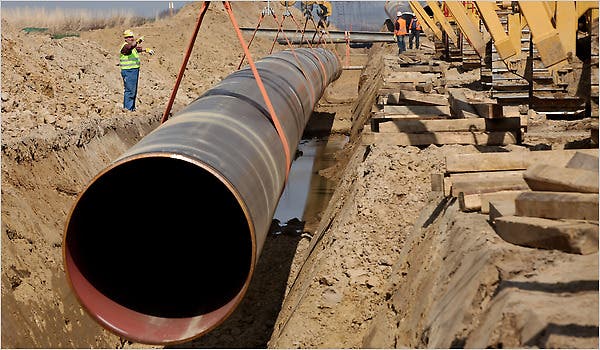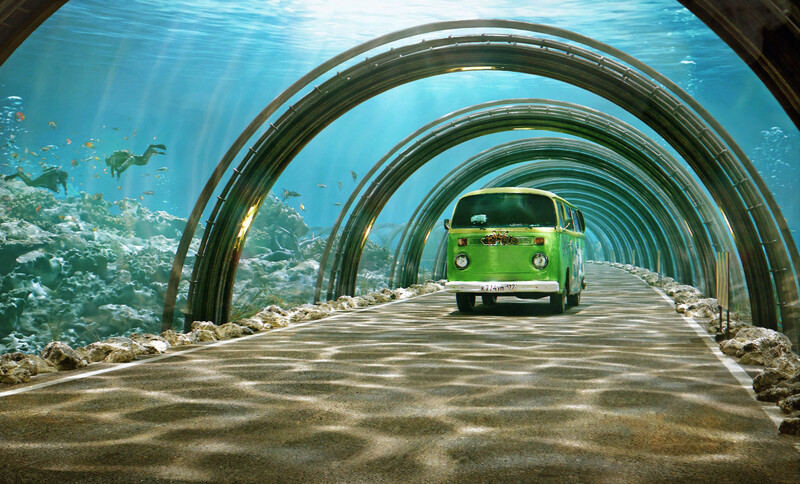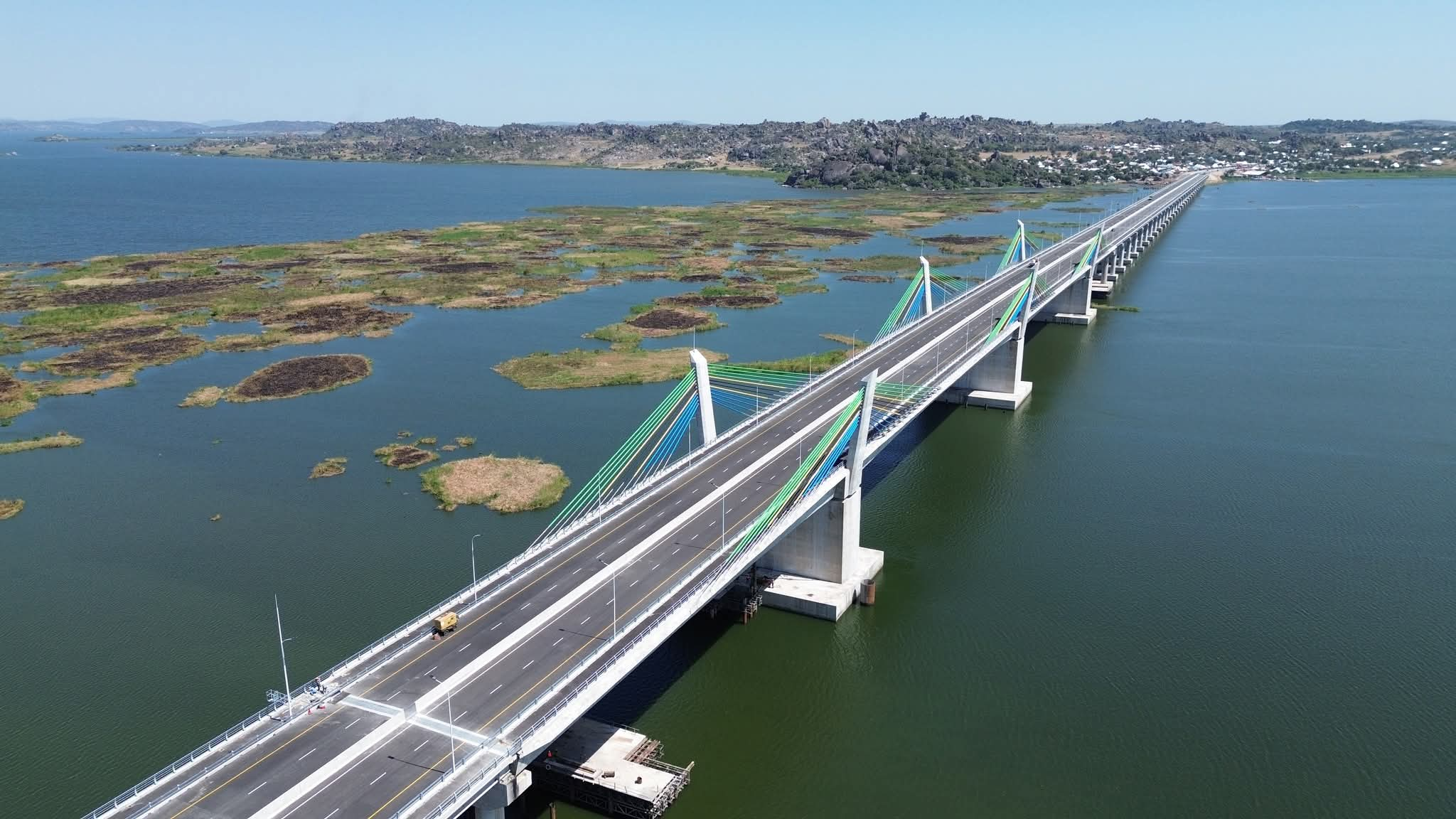NORD STREAM: A Gas Pipeline Project Marred by International Politics, Controversy

Did you know that the Nord Stream gas pipeline was the first pipeline that bypassed Ukraine and Poland to deliver Russian natural gas directly to Western Europe?
In 2021, Russia supplied roughly 45 percent of the natural gas imported by European Union states. However, back in 2019, former US President Donald Trump had said that Nord Stream 2 could turn Europe into a "hostage of Russia" and placed sanctions on any company assisting Russia to complete the pipeline. In December 2020, then President-elect Joe Biden came out forcefully against the opening of the new pipeline and the impact this would have on potential Russian influence.
Nord Stream (North Stream) is a network of offshore natural gas pipelines which run under the Baltic Sea from Russia to Germany to provide Western Europe with natural gas, comprises of two separate projects, Nord Stream 1 (NS1) and Nord Stream 2 (NS2). Both pipelines each comprise two pipes, NS1 A and B as well as NS2 A and B, for a total of 4 physical pipes. Both pipelines which start in Russia and land in Lubmin, Germany, were built to increase gas exports towards Europe, aiming to double annual capacity.
Nord Stream is owned by a consortium of 5 energy companies: Gazprom international projects North 1 LLC (Gazprom Group company), Wintershall Dea AG, PEG Infrastruktur AG (E.ON), N.V. Nederlandse Gasunie and ENGIE. NS1, operated by Nord Stream AG, runs from Vyborg in northwestern Russia near Finland, and entered service in 2011.
In 2021, the Biden administration lifted the sanctions, stating that while it was "unwavering" in opposition to NS2, removing the sanctions was a matter of national interest, to maintain positive relations with Germany and other US allies in Europe. The second pipeline was completed in September 2021.
The NS2 project was completed in 2021, but did not enter service because Germany withheld opening permission on February 22, 2022 due to Russia recognizing the Ukrainian separatist regions of the Donetsk People's Republic and the Luhansk People's Republic as independent, in line with a previous joint warning made with US president Joe Biden on February 7, 2022 to end the project if Russia were to invade Ukraine. On 6 February 2022, speaking at a joint news conference with German chancellor Olaf Scholz, American president Joe Biden said "If Russia invades… Ukraine again, then there will be no longer a Nord Stream 2. We will bring an end to it."
The project Nord Stream 2 was opposed from the start by the United States primarily because it would increase German dependence on Russian energy. The United States later imposed sanctions on companies that were involved in the project. The U.S. sanctions were criticized heavily by German politicians as "a serious interference in the internal affairs of Germany and Europe and their sovereignty".
From 31 August 2022, Gazprom halted delivery indefinitely, officially because of maintenance. NS2 runs from Ust-Luga in northwestern Russia near Estonia. On 26 September 2022, a series of underwater explosions and consequent gas leaks occurred on 3 of 4 pipes of the NS1 and NS2 natural gas pipelines, two of 23 gas pipelines between Europe and Russia. Prior to the leaks, the pipelines were filled with natural gas but were not transporting it as a consequence of the Russian invasion of Ukraine.
On 26 September at 02:03 local time (CEST), an explosion was detected originating from NS2; a pressure drop in one of its pipes was reported and natural gas began escaping to the surface southeast of the Danish island of Bornholm. Seventeen hours later, the same occurred to both pipes of NS1, resulting in three separate leaks northeast of Bornholm.
All three affected pipes were rendered inoperable; in October Russia confirmed that one of the two NS2 pipes was operable and would be ready to deliver gas through NS2. The leaks occurred one day before Poland and Norway opened the Baltic Pipe running through Denmark, bringing in gas from the North Sea, rather than from Russia as the Nord Stream pipelines do. The leaks were located in international waters, but within the economic zones of Denmark and Sweden.
Prior to being sabotaged, neither of the Nord Stream pipelines were delivering gas. NS2 had been completed in 2021, but had not entered service because Germany had suspended its certification on 22 February 2022 thereby stopping the project, following official recognition of the Donetsk People's Republic and Luhansk People's Republic by the Russian State Duma and President Putin during the prelude to the 2022 Russian invasion of Ukraine. From 31 August 2022, Gazprom had halted delivery via NS1 indefinitely, officially because of maintenance.
Both NS1 and 2 were however pressurized with gas. The NS2 pipeline contained the equivalent of an estimated 150 million cubic metres (5.3 billion cubic feet) to 300 million cubic metres (11 billion cubic feet) of gas, pressurized to over 100 bar, at the time of the explosions. An environmental impact assessment of NS2 was made in 2019. By 2012, corrosion leaks had only occurred in two large pipelines worldwide. Leaks due to military-type acts and mishaps were considered "very unlikely". The largest leak in the analysis was defined as a "full-bore rupture (>80 mm [3.1 in])", for example from a sinking ship hitting the pipeline. Such an unlikely large leak from 54 metres (177 ft) water depth could result in a gas plume up to 15 metres (49 ft) wide at the surface.
On 27 September 2022, European gas prices jumped 12 percent after news spread of the damaged pipelines, despite the fact that NS1 had not delivered gas since August and NS2 had never gone into service. Two days after the attack Secretary-General Jens Stoltenberg of NATO said the leaks were acts of sabotage and that he had discussed the protection of critical infrastructure within NATO with the Defence Minister of Denmark Morten Bødskov.
Russia asked for an international investigation at the UN Security Council which was rejected. Denmark, Germany and Sweden each initiated separate investigations, describing the explosions as sabotage. The Swedish and Danish investigations were closed in February 2024 without identifying those responsible, but the German investigation is still ongoing. In August 2024, media reported that in June, German authorities issued a European arrest warrant for a Ukrainian national suspected of having used the yacht Andromeda together with two others to sabotage the Nord Stream pipeline.
Source: Wikipedia | Image: NY Times
#penglobalfactfile #NordStream


_1755775186.jpg)
